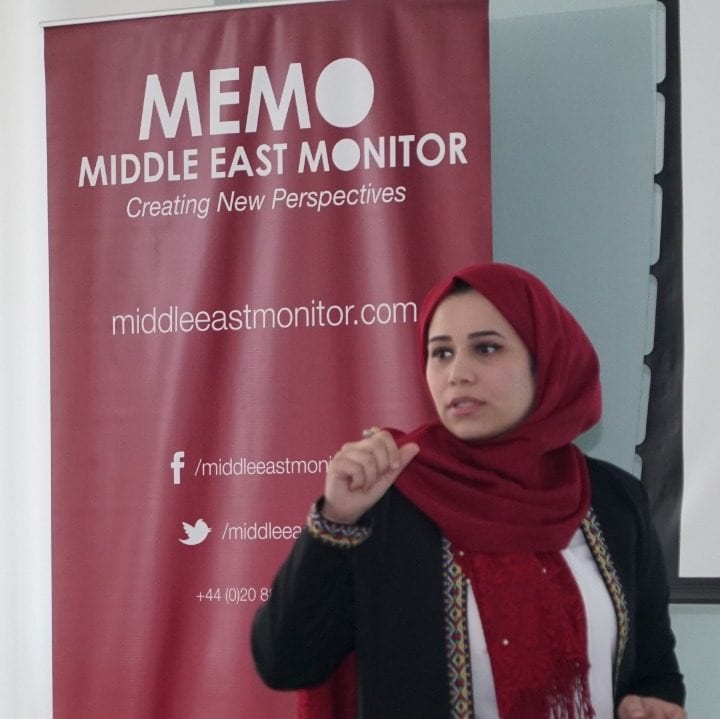In her book and documentary film My land lives in me, Bruna Kadletz weaves a deeply personal journey with stories from refugee camps in Lebanon and Palestine. She believes firmly that when you have humanity in your heart, you start seeing people for who they really are, regardless of their background, ethnicity, religion and all other fabricated divisions. “Through these visits,” she explains, “my humanity unfolds, and when my humanity meets another person´s humanity, a true connection takes place.”
Kadletz is a former dentist turned humanitarian activist from Brazil. Peace-builder and traveller, she is the co-founder of Círculos de Hospitalidade (Circles of Hospitality), a Brazilian NGO that develops social, cultural and educational initiatives for refugees. “We aim to facilitate the integration process of refugees and migrants in host societies.”
When, in 2008, she travelled to Maranhão, a state in the north of Brazil, she awoke to the reality of the violence, poverty and structural injustice existing there. This was her defining moment; her life-changing epiphany that made her switch from dentistry to activism. She left a promising career to devote her time to serving displaced communities and persecuted refugees.
“I was 25 years old when I witnessed human misery for the first time,” she recalls. “It was 2008, and I had moved to a remote city in the underprivileged state of Maranhão. Despite moving with the illusion of building a new life, the harsh realities of extreme poverty and structural violence expanded my worldview in ways I couldn’t imagine.”
Brazilian–Palestinian relations: The turning point
This led her to a Master’s degree in Sociology and Global Change, and field research in South Africa, where she studied political and social mechanisms which categorise certain groups, such as refugees and vulnerable migrants. Since then, she has visited and connected with displaced communities in several countries, including Lebanon, Jordan, Turkey and Palestine, as well as South Africa. “Through my work, I seek to regenerate a culture of hospitality and humanise narratives on refugees, highlighting their courage, resilience and potential.”
![Kadletz speaking to members of the Scottish Parliament in Edinburgh in February 2017 about the situation of refugees [Burna Kadletz/Middle East Monitor]](https://i0.wp.com/www.middleeastmonitor.com/wp-content/uploads/2020/09/16463488_10154609338754191_6203890331479676658_o.jpg?resize=933%2C700&ssl=1)
Kadletz speaking to members of the Scottish Parliament in Edinburgh in February 2017 about the situation of refugees [Burna Kadletz/Middle East Monitor]
In 2017, Bruna was filming a documentary with Irish filmmaker Alan Gilsenan about the global refugee crisis, with a focus on the Syrian cause. Visiting Palestine and the occupied territories was not part of their original plan.
“Nevertheless, while we were there, I witnessed and heard about human rights violations, from the demolition of Palestinian houses by the Israeli government and the unjustified imprisonment and killing of Palestinian youths, to subtle and direct legal instruments which humiliate and deprive Palestinians of their rights to housing, work and freedom of movement. We thought it would be important to include their voices in our film, and we also wanted to understand the lived experiences of Palestinians living as refugees in their own land.”
![Kadletz alongside part of the Israeli “Separation Wall” during her visit to Palestine in 2017 [Burna Kadletz/Middle East Monitor]](https://i0.wp.com/www.middleeastmonitor.com/wp-content/uploads/2020/09/49594232_10156340315629191_3271175409076535296_o.jpg?resize=248%2C333&ssl=1)
Kadletz alongside part of the Israeli “Separation Wall” during her visit to Palestine in 2017 [Burna Kadletz/Middle East Monitor]
READ: In Gaza where I was born and studied, success is not optional, it’s essential
In her book, Kadletz weaves a deeply personal journey with reflections and stories from the front lines of forced displacement as she seeks to humanise the narrative around refugees and migrants. The film takes the viewer from the edge of displacement in the Amazon basin to the alleys of refugee camps in Lebanon and Palestine and the heart of caring for others, where her quest is to find a home in a changing world.
The title was inspired by a conversation that she had with a Palestinian friend who was born in exile in a refugee camp in Lebanon. “Referring to his dream of returning to the land of his ancestors, Saed told me, ‘All people live in their lands, but my land lives in me.’ His words moved me, and made me realise the pain of visiting one’s homeland only in dreams and memories, of not being able to return home.”
Kadletz thinks that Saed’s feelings resonate with other refugees around the world. “Given the current Israeli plans of expanding illegal settlements and reducing even further the rights of Palestinians, and the silence of the international community, we’re likely to see more and more Palestinians being born in exile, destined to be refugees for their entire lifetime.”
Since then, she has been busy with events and activities within and beyond Brazil in support of Palestine and refugees. “On Land Day [30 March annually], we organised an event here in Brazil. We honoured the lives of all Palestinians who live under occupation and particularly those who lost their lives in Israel’s brutal attacks in Gaza. We stand for freedom and justice, for all peoples around the world.”
In the light of the Arab-Israeli normalisation deals that we are witnessing, Bruna Kadletz’s film is a reminder of why we should challenge such agreements and stand in solidarity with the Palestinians in the occupied territories. She travelled more than 10,000 kilometres from Brazil to Palestine in order to see the Palestinian-Israeli conflict with her own eyes and understand the lived experiences of Palestinian refugees.
“When I was in Palestine, I went olive picking with friends,” she concludes. “Like the Palestinian people, olive trees bear fruit even in inhospitable environments. And also like the Palestinian people, they’re a symbol of resistance and resilience.”


![Burna Kadletz in Burj Barajneh Palestinian Refugee Camp in the southern suburbs of Beirut, October 2017 [Burna Kadletz/Middle East Monitor]](https://i0.wp.com/www.middleeastmonitor.com/wp-content/uploads/2020/09/37868267_10155995507124191_5656761147634745344_o.jpg?fit=1200%2C714&ssl=1)

![BK_0133_Livro Kadletz at a book signing session in Brazil, 2019 [Burna Kadletz/Middle East Monitor]](https://i0.wp.com/www.middleeastmonitor.com/wp-content/uploads/2020/09/BK_0133_Livro.jpg?w=596&h=397&ssl=1)
![BK_0143_Livro Kadletz at a book signing session in Brazil, 2019 [Burna Kadletz/Middle East Monitor]](https://i0.wp.com/www.middleeastmonitor.com/wp-content/uploads/2020/09/BK_0143_Livro.jpg?w=596&h=397&ssl=1)








